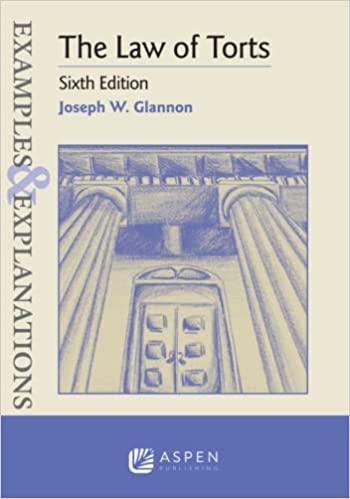Question
Privacy Laws Discussion Collapse There are statutes in New Jersey that are in place in order to protect employees from having to disclose information pertaining
Privacy Laws Discussion
Collapse
There are statutes in New Jersey that are in place in order to protect employees from having to disclose information pertaining to their social media accounts. One NJ statute states that "No employer shall require or request a current or prospective employee to provide or disclose any user name or password, or in any way provide the employer access to, a personal account through an electronic communications device" (N.J. Stat. Ann. 34:6B-6, 2013). Additional statutes also protect an employee from having to waive or limit their protection, as well as protect the employee from retaliatory or discriminatory conduct if they refuse to disclose information or if they report an alleged violation (N.J. Stat. Ann. 34:6B-7, 2013; N.J. Stat. Ann. 34:6B-8, 2013).
There are clearly issues that would present themselves if these statutes were not in place. If it were not prohibited, an employer could require a job applicant to provide their username and password. This may expose their personal information such as their age, religion or if they were pregnant, which are things that the employer would normally be prohibited from inquiring about. This would subject the applicant to unlawful discrimination. In addition, when an individual chooses a private setting on social media and they accept a friend's follow request, they would not want unauthorized users such as individuals from their friend's workplace or school to view their profile. This may compromise the privacy of the individual's friends and family. There is no reason for an employer to request personal social media account information if the employee does not use the account for business purposes or business communications. The law provides too little protection for employees. The statue does not prohibit employers from asking or inquiring whether they have an account at all. The law could further protect employees if this was also prohibited, as it is for educational institutions.
There are also statues in place in New Jersey that protect students from having to disclose information regarding their social media accounts. Under these statutes, it is prohibited to require a student or applicant to disclose their username or password to a personal account, toinquire as to whether they have an account or profile on social media, or to discriminate or retaliate after a student refuses to provide information (N.J. Stat. Ann. 18A:3-30, 2012). Students also are protected from having to waive or limit any protection under the act (N.J. Stat. Ann. 18A:3-31, 2012). I believe the law provides too little protection for students. The restrictions apply to private or public institutions of higher education, meaning education beyond high school. High school students use social media as much if not more than college students. They should be entitled to similar protections.
There are also penalties that both employers and educational institutions are subject to if they violate the provisions of this act. Employers are "subject to a civil penalty in an amount not to exceed $1,000 for the first violation and $2,500 for each subsequent violation"(N.J. Stat. Ann. 34:6B-9, 2013). On the other hand, students may be awarded "injunctive relief; compensatory and consequential damages incurred by the applicant as a result of the violation, taking into consideration any failure to admit the applicant in connection with the violation; and reasonable attorneys' fees and court costs" (N.J. Stat. Ann. 18A:3-32, 2012). I believe that the penalties for educational institutions are sufficient; however, I believe that the penalties for employers should be harsher. Employees shouldbe able to institute a civil action in court, rather than only reporting violations. They should alsobe entitled to be awarded injunctive relief, compensatory and consequential damages, and reasonable attorneys' fees and court costs as are students.
You should critically analyze this posts, which may include suggestions for how the post could be improved or what you like about the post and why, or you could respectfully argue your position, and explain why the author is wrong or other reasons the author is right.
Step by Step Solution
There are 3 Steps involved in it
Step: 1

Get Instant Access to Expert-Tailored Solutions
See step-by-step solutions with expert insights and AI powered tools for academic success
Step: 2

Step: 3

Ace Your Homework with AI
Get the answers you need in no time with our AI-driven, step-by-step assistance
Get Started


